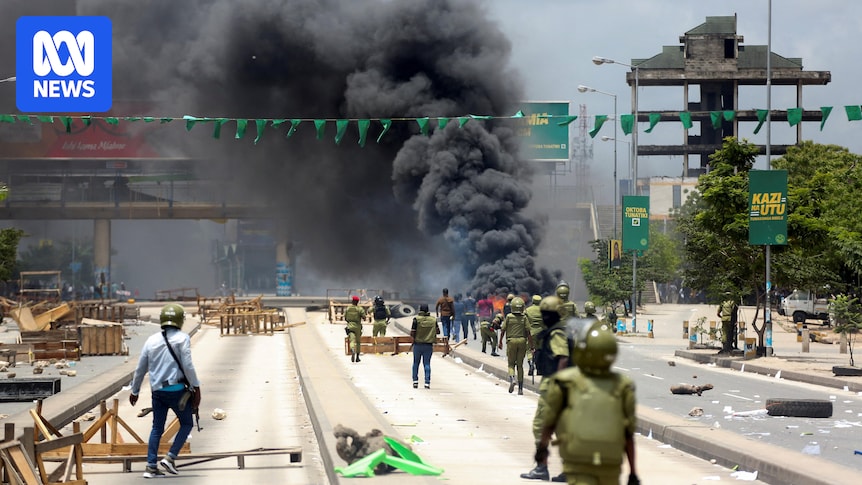
Tanzanian President Samia Suluhu Hassan has emerged victorious in the country’s contentious election, securing over 97 percent of the vote as per official results announced early Saturday. The announcement was made in Dodoma, the administrative capital, where President Hassan accepted her winner’s certificate from the electoral authorities. She emphasized the overwhelming support for a female leader, stating, “It’s time to unite our country and not destroy what we’ve built over more than six decades.”
President Hassan, who ascended to power in 2021 following the death of her predecessor John Pombe Magufuli, faces significant scrutiny over the legitimacy of the recent election. Critics and opposition groups have labeled the election as a “coronation” rather than a democratic contest, pointing out that her main rivals were barred from participating. Instead, she faced 16 candidates from smaller parties.
Election Marred by Violence and Disruptions
The election period was fraught with unrest, as protests erupted across major cities, leading to violent clashes and the deployment of military forces to assist police in quelling riots. Internet connectivity has been inconsistent, disrupting daily activities and prompting the government to delay the reopening of universities, initially scheduled for November 3.
In Dar es Salaam, the commercial hub, a tense calm prevailed on Saturday with security forces maintaining roadblocks and checking identification. While the government has not disclosed casualty figures, a United Nations human rights spokesperson reported credible accounts of at least 10 fatalities in Dar es Salaam, Shinyanga, and Morogoro. Foreign ministers from the UK, Canada, and Norway have also cited reports of significant injuries and fatalities.
UN Secretary-General Antonio Guterres expressed concern over the situation, urging all parties to “prevent further escalation.”
Opposition Suppression and Political Dynamics
The election has highlighted the challenges faced by opposition figures in Tanzania. Tundu Lissu, leader of the Chadema opposition group, remains imprisoned on treason charges after advocating for electoral reforms. Luhaga Mpina of the ACT-Wazalendo party was similarly barred from running, underscoring the ruling Chama Cha Mapinduzi (CCM) party’s grip on power.
CCM, which has ruled Tanzania since its independence from Britain in 1961, continues to dominate the political landscape. The party’s structure, closely tied to the state and security apparatus, facilitates the emergence of new leaders every five to ten years, contributing to Tanzania’s reputation for political stability and peace.
Amnesty International and other rights groups have warned of a “pattern of enforced disappearances, arbitrary arrests, and extrajudicial killings” in the lead-up to the elections.
Historical Context and Future Implications
The political maneuvering witnessed in Tanzania is notable even in a region where single-party rule has been prevalent since the introduction of multi-party politics in 1992. Previous leaders have managed to maintain power while tolerating some opposition, but President Hassan’s administration is accused of adopting a more authoritarian approach, stifling youth-led democracy movements seen elsewhere in Africa.
The CCM’s longstanding ties with the Communist Party of China and its fusion with the state apparatus have further solidified its control. The party’s ability to maintain order and stability has garnered support, particularly among rural voters, yet the recent election has sparked concerns about the future of democratic processes in Tanzania.
As President Hassan begins her new term, the international community and Tanzanian citizens alike will be closely monitoring her administration’s actions. The focus will be on how she addresses the political tensions and whether she can bridge the divides that have surfaced during this contentious election period.





